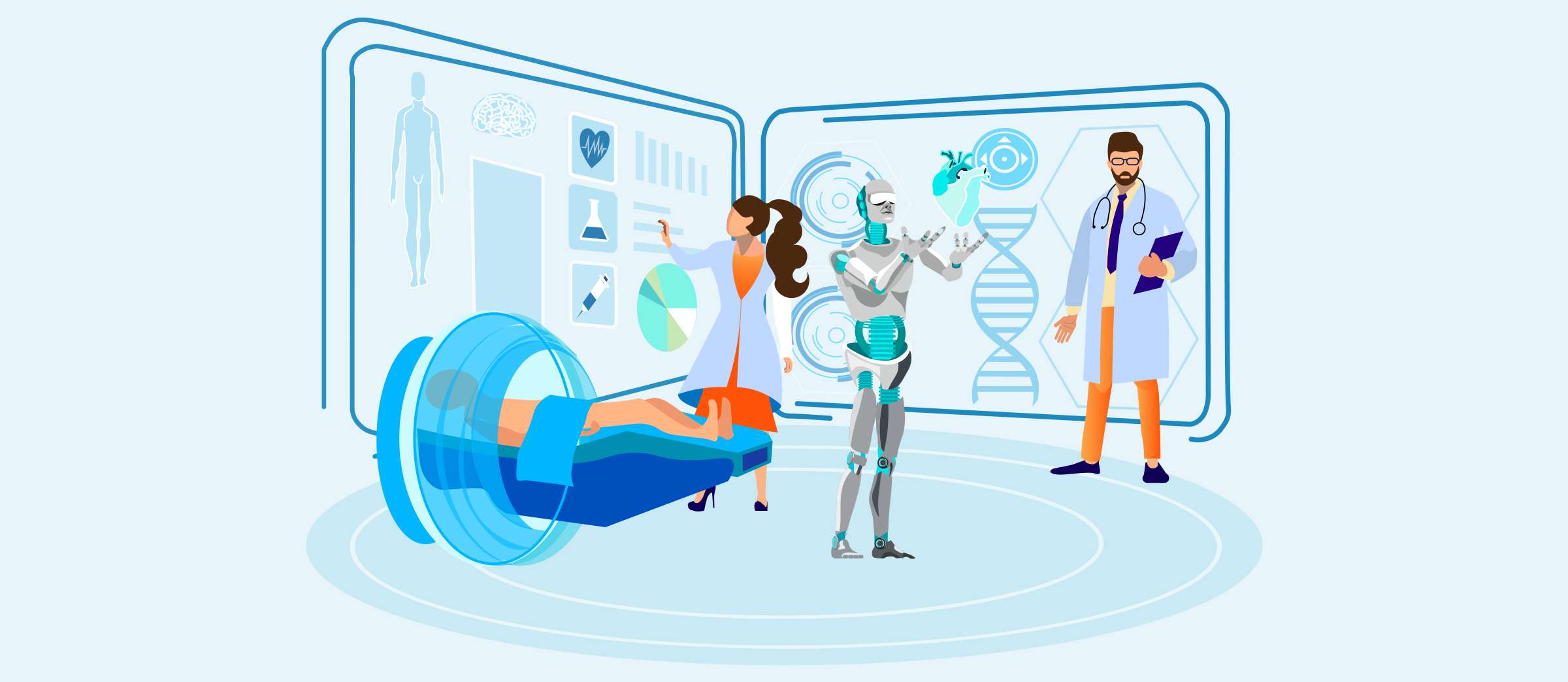 Meet Freya
Meet Freya

The fusion of Artificial Intelligence (AI) and Machine Learning (ML) within the medical devices industry is revolutionizing the entire healthcare sector. These advancements promise to improve Quality of Life (QoL), drive efficiencies for Health-care practitioners (HCPs) and result in improved patient outcomes. For instance, AI-powered diagnostics have demonstrated accuracy rates of up to 95%, leading to more precise and timely diagnoses, according to a study published in Nature Medicine.
The advantages of AI in the medical device industry are manifold. Notably, remote surgery facilitated by AI-driven robotics has shown a reduction in surgery time by up to 21% and a decrease in post-operative complications by 66%, as reported by the Journal of Robotic Surgery. Furthermore, AI-enabled clinical trials have demonstrated a 30% reduction in trial durations, accelerating the development of life-saving medical interventions.
However, it's crucial to address potential downsides, particularly regarding patient safety and privacy. Studies have shown that 83% of healthcare organizations have experienced a cybersecurity breach within the last two years, emphasizing the importance of robust security measures in AI-driven medical devices.
The rapid advancement of AI/ML technologies in the medical device industry has led to the development of innovative solutions such as AI-powered diagnostics, predictive analytics, personalized treatment planning, remote patient monitoring, and surgical robotics.
In response, regulatory agencies have introduced new regulations to ensure the safety, efficacy, and reliability of these technologies.
These regulations include risk-based classification, validation and verification requirements, clinical evidence standards, post-market surveillance programs, and transparency measures. Together, these efforts aim to strike a balance between fostering innovation and safeguarding patient safety, enabling the widespread adoption of AI-driven medical devices to improve healthcare outcomes and save lives.
Staying ahead of regulatory changes amidst AI disruption requires proactive strategies and robust compliance measures. With 75% of medical device companies citing regulatory compliance as their top challenge, investing in regulatory intelligence tools becomes essential.
By leveraging such tools, companies can gain access to real-time updates and alerts enabling them to navigate the complex regulatory landscape with confidence.
At Freyr, we understand the market needs a comprehensive regulatory intelligence system that proactively tracks, updates, and informs the stakeholders with relevant regulatory information from this space.
With a centralized regulatory database spanning multiple countries at your disposal, Freyr’s own Freya.Intelligence platform does just that! Real-time updates and alerts ensure that businesses are promptly informed of regulatory changes, facilitating proactive compliance measures.
And recently, with the launch of Freya – Freyr's AI-First Regulatory Wiz, companies can “Just Ask and Not Search” for medical devices guidelines and regulations across the globe and receive verified, accurate and referenceable answers in a matter of seconds!
Freya equips companies to navigate the evolving regulatory terrain with confidence, safeguarding product compliance and patient safety.
Want to know more about Freya and Freyr GRI? Click here: https://uiplonline.com/freya-wordpress/


Get your regulatory dose of information delivered straight to your inbox every month!
Subscribe Now